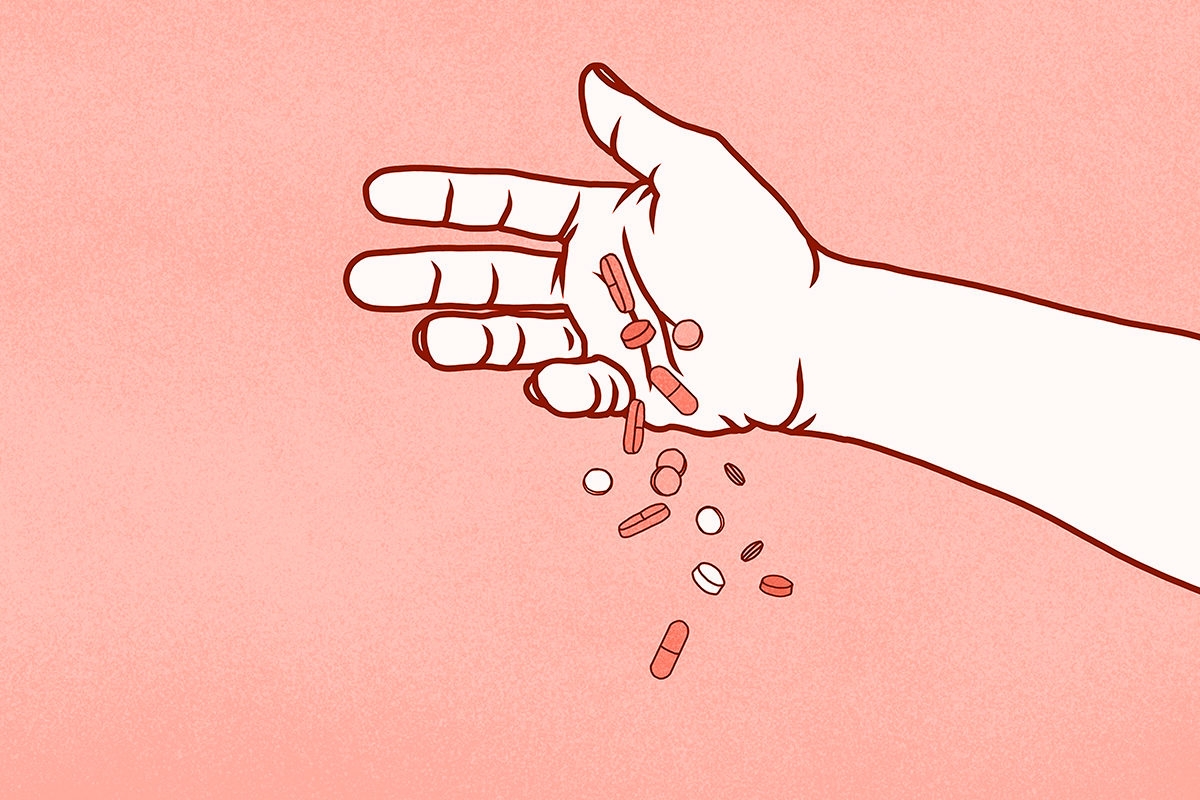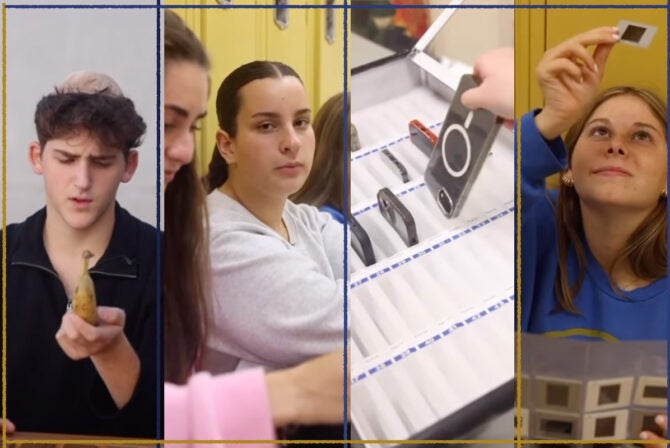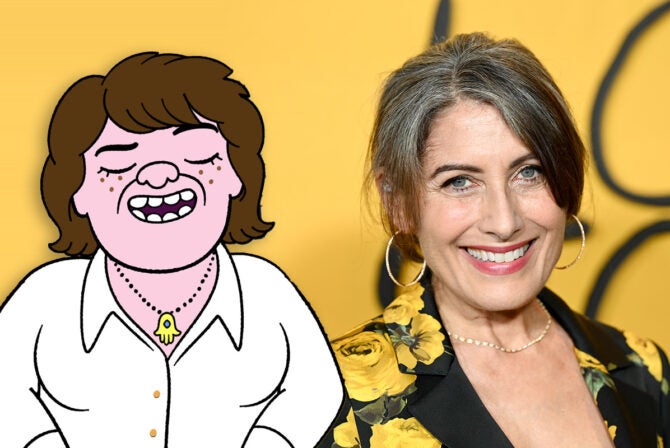I looked at the small yellow scrap of paper in front of me, hesitating with the pen. I was sitting at a large round table with my then 10-year-old son, with families and kids I barely knew, for a parents’ day discussion at our synagogue’s religious school. I hadn’t expected this question. If I believe in God? Am I allowed to consider that question?
I was new to Judaism, having converted earlier that year, initially because of my son’s desire to adopt my husband’s religion. My kid was looking for… something, and I guess I was, too. I hadn’t grown up with any real attachment to faith. We celebrated Christmas and Easter, but my parents and I never went to church, unless there was a wedding or a funeral or a baptism. I knew much of my extended family believed in God — a Christian God that, of course, you had to believe in — and that never felt right for me. I wasn’t sure if I believed in any God at all.
I glanced at my son’s yellow scrap of paper. In his practically illegible handwriting, which he definitely got from me, he’d written peace. I exhaled and shut my eyes for a moment. His answer filled me with gratitude. It was so different from what I would have said, or would have imagined, when I was 10 years old.
Peace was something I hadn’t believed was possible for me. I’d started stealing pills when I was 8 years old, trying to squash the increasing anxiety and depression I felt. It was the kind that made me feel like I was choking, the kind that pressed in on me, squeezing out all the air.
At 13, I tried heroin, and I struggled with addiction for the next 15 years. My addiction and depression always went hand in hand, entangled in a codependent relationship, one that pulled me away and made me disconnect from my family and friends, from all the things that should have grounded me. Heroin created a bubble, an invisible barrier between me and the rest of the world. I was constantly leaving, constantly racing away from emotional intimacy with those who got too close to me. That disconnection was lonely and painful and nearly killed me.
In recovery, I learned how to be an adult, how to be a mother, how to take care of my mental health, how to live, how to love. I learned how to stay. I learned how to let people see me — the real me. As I marked my time away from drugs in hours, then weeks, then months, and then years, what I needed shifted. I no longer wanted to erect walls in my relationships; I wasn’t always looking for an escape. I finally wanted to connect with the people I love, and to begin letting their love in, too. The more work I did, the deeper I needed to go, and that meant it was time to explore what I yearned for, spiritually.
As I began to learn more about Judaism, and our family became members of our Reform synagogue, I realized that what resonated with me — someone who had previously dismissed the concept of organized religion — was tikkun olam, the centerpiece of Reform Judaism. There is no more immediate way to feel connected than to take action to “repair the world.”
This tenet has become the heart of everything I do. In my work — my writing, my advice column, and my work as an editor — I operate from the intention of helping people feel seen, understood, less alone. As a result, I, too, feel less alone.
And so, at the religious school event, after savoring the moment, I opened my eyes. I picked up the pen and wrote connection on the little scrap of yellow paper.
Later, when the rabbi made his way around the room to talk with us one-on-one, I spoke with him about God and about what I’d written. “What if I’m not sure if I believe in God or know what God is?” I asked.
“You don’t have to believe in God,” he replied. “You need to be willing to ask yourself the questions.”
Next came time for a group discussion. As I sat there listening to my son and the other kids talk about what God means — as both a concept and a word — I thought about what the rabbi said, about what I’d written. Connection. That’s what I didn’t have, that’s what I ran from. Maybe God is as simple as feeling connected to something bigger than you.
In this seemingly simple exercise, I’d uncovered what that unnamable something was that I’d found so comforting in Judaism. Years earlier, when I was in the throes of addiction, I would have never predicted that this is where’d I’d land, that I’d somehow find room for faith in my life; a faith that allowed me to grapple with my concept of God.
In recovery, as a Jew, I participate in a living path of spirituality that encourages me to think and to give back. These are the backbone of what makes me feel like I am finally at home in the Jewish faith. This is a lifelong learning process, one in which we are called upon to question, to use our brains, to continue expanding our understanding of the ethical basis of Judaism, as well as our spiritual connection to, and relationship with, God — whatever that may mean.
As I’d written on that scrap of paper, God, for me, means connection, connection to other humans and to the world around me. We are taught to “heal the world,” to give of ourselves, to make a difference, to not sit quietly and do nothing. These are values that are important to me and important to pass on to my children.
It’s now been nearly 17 years of sustained recovery for me, longer than my years of active addiction. Being able to stay off drugs was my only goal at first. I had no idea what my life could look like without drugs, without the overwhelming desire to kill myself. The years of psychiatric care and talk therapy and cognitive behavioral therapy made it possible for me to mother and partner and contribute to my family and to society.
Though I was open to a multitude of paths as I began searching for a deeper spiritual life in my recovery, I never anticipated how rich and meaningful Jewish principles and traditions would become for me. I’m grateful that I got here, and that within Jewish tradition, I finally found connection.
Image by Malte Mueller/Getty Images








